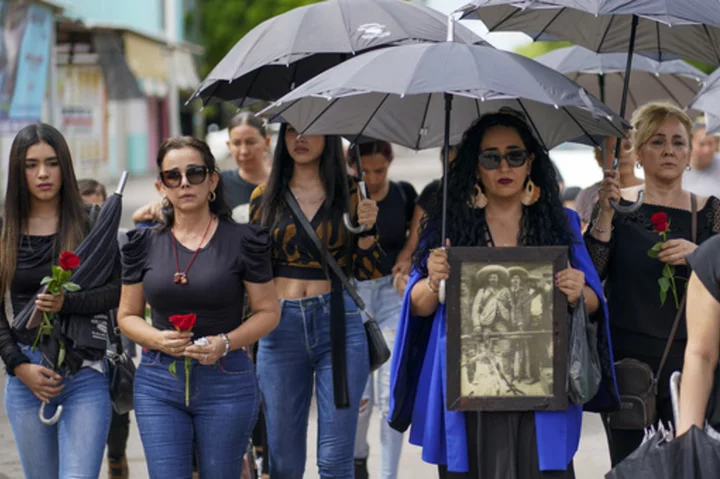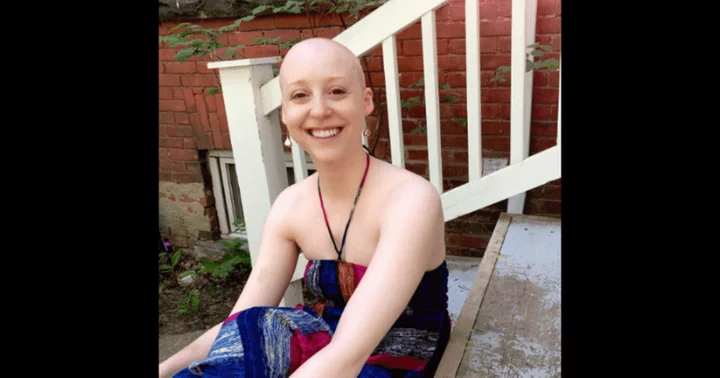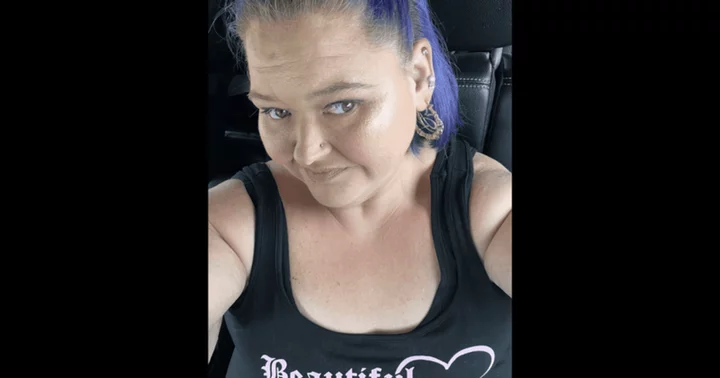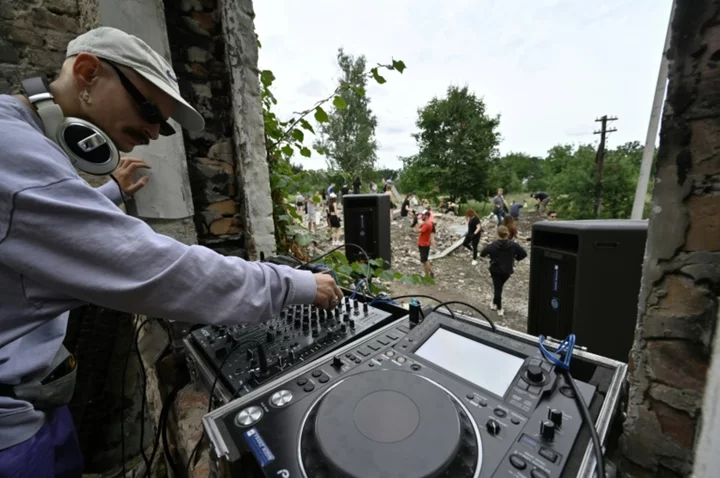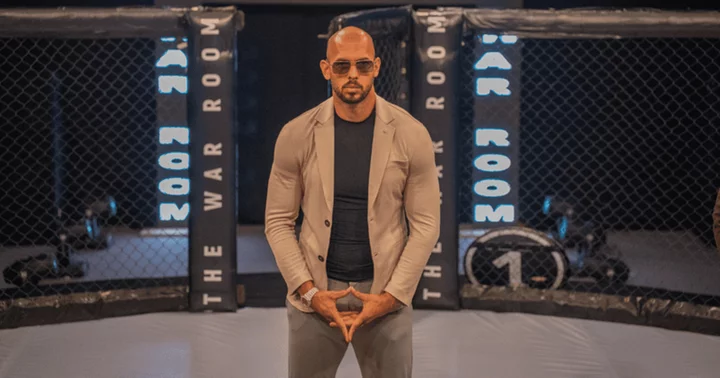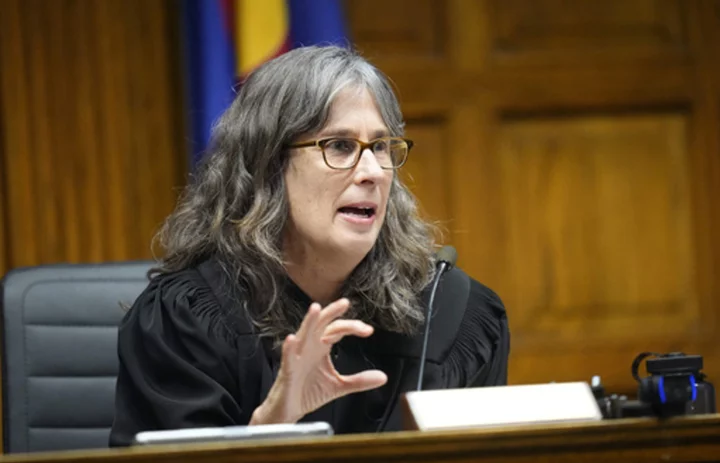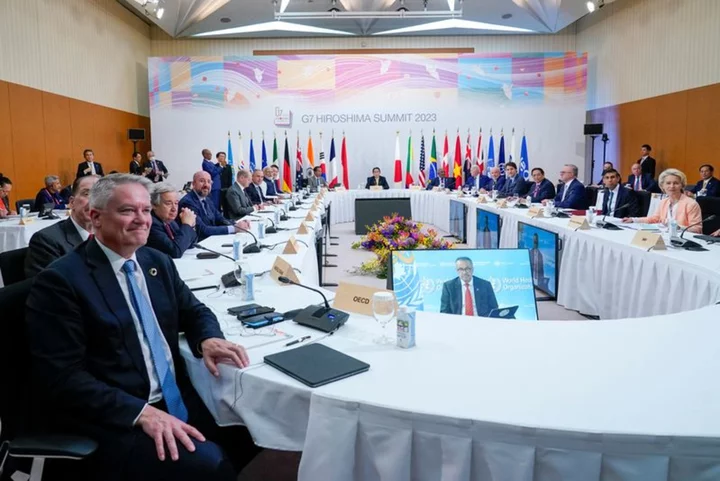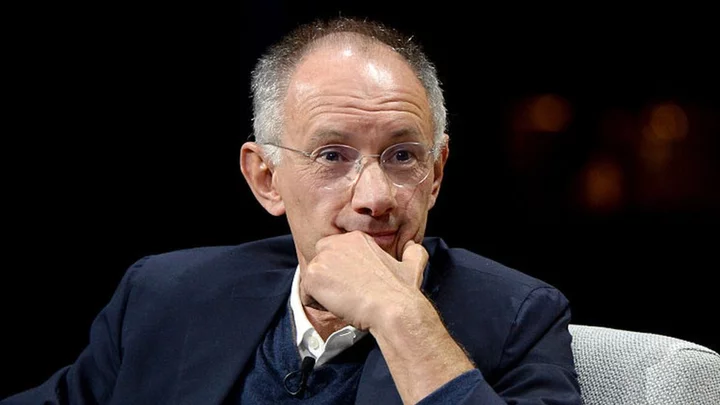LA RUANA, Mexico (AP) — One of the last leaders of Mexico’s anti-gang citizens' movement was buried Saturday alongside two of his faithful followers, and any hope of reviving armed civilian resistance to drug cartels probably died with them.
“Self defense” vigilante leader Hipolito Mora had long since ceased to pose an armed threat to the cartel that dominates western Mexico's Michoacan state, as was clear from the overwhelming, deadly, multipoint ambush in which he and three followers were slain Thursday.
While some angry relatives talked of reviving the 2013-2014 armed farmers' movement that kicked out one cartel — only to see it replaced by others — many doubted that heroic, tragic chapter could ever be repeated.
“I think it’s not a question of reviving the past,” said the Rev. Gilberto Vergara, one of the priests who officiated the funeral Mass for Mora and his followers Calixto Alvarez and Roberto Naranjo. The third follower was buried elsewhere.
“The circumstances have changed, they’re different, and we saw how everything ended.”
Mora himself acknowledged that the 2013 movement, in which farmers and ranchers banded together to resist constant threats and extortion from the Knights Templar cartel, wound up infiltrated by members of other drug gangs.
The cartel now dominating the state, alternately called the Viagras or the United Cartels, “is worse than the ones who were here before,” Mora’s brother, Guadalupe Mora Chavez, said.
“If the government and (Michoacan Gov. Alfredo Ramírez) Bedolla don’t do something, there are possibilities the people will rise up in arms again," the brother said.
But most at Mora’s wake were too afraid of cartel retaliation even to have their names appear in print.
“He looked out for his town, for his people, and that is something none of us is going to do," his sister, Olivia Mora, said in a tearful address in front of his coffin.
“We all think first about our own families,” she said. “None of us are going to have the courage to do what he did.”
“I hope that something remains,” another of Mora's weeping female relatives said. “I hope his voice hasn’t been silenced.”
Mora always spoke out against the cartels’ extortion of local farmers and lime growers, ,even after his hundreds of followers had been reduced to a handful.
The female relative, who asked that her name not be used, said the extortion has grown so bad some growers are giving up their businesses, and locals sometimes are forced to pay double the price for basic goods.
The power of the drug cartels has only grown over the last decade. The Rev. Gregorio López, a priest who was not present at the funeral, said President Andrés Manuel Lopez Obrador’s policy of not confronting the cartels has allowed them to grow.
“The ‘hugs not bullets’ policy has been the perfect fertilizer for growing drug cartels across the country," he said.
The overwhelming power of the cartels was visible in the bullet holes in the walls where Mora and his bodyguards died. The Michoacan state prosecutors’ office said unidentified gunmen cut off his SUV and his bodyguards’ pickup truck on a street in La Ruana, Mora's hometown, then riddled Mora’s vehicle with bullets and then set it on fire.
In a forensic inspection Friday, authorities marked out where bullets hit Mora’s vehicle from three sides. Residents shared video of the attack that suggested cartel gunmen used a machine gun and a sniper rifle to destroy Mora’s vehicle.
Residents of La Ruana, located in the torrid agricultural belt of western Michoacan state, did turn out by the hundreds Saturday for the funeral.
At the local cemetery, Mora and his two followers were laid to rest to the tune of the Joan Sebastian “corrido” ballad “The General.” The lyrics go: “I have been a general a long time, and even though I am wounded, I never forget about my troops, and they haven’t buried me yet.”
A knot of state police stood outside the cemetery, providing security that was never provided to Mora. Despite the big tearful farewell, it is becoming more difficult to even speak out against the cartels' domination, which is mainly what Mora did in his final years along with running his lime orchard.
The cartels seem intent on squelching even non-violent resistance.
“The narcos and the drug cartels are always going to try to get rid of anything that gets in their way,” said Vergara, the priest.
The time for armed self-defense movements is past, he said.
“Guns don’t help us, civilians shouldn’t carry guns,” Vergara said. “I think it is up to the government to do their duty.”
That appears unlikely, given the government’s current policy of tolerating the homegrown Viagras cartel, while fighting off an offensive by the Jalisco cartel to enter the state.
“They have to fight all the cartels," said Guadalupe Mora.

